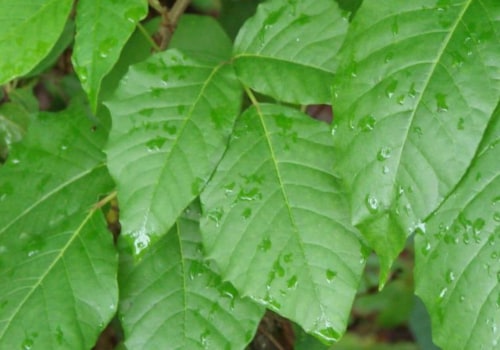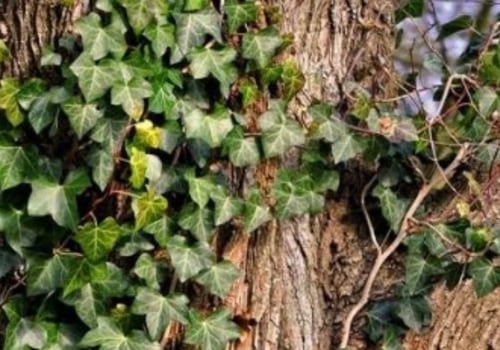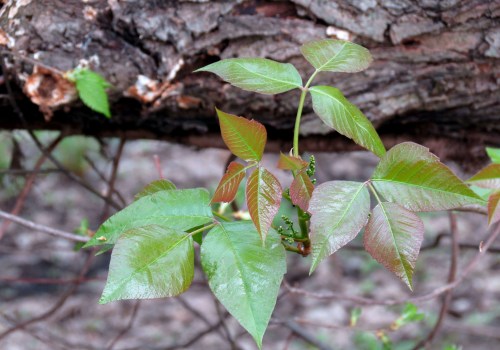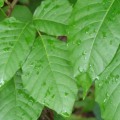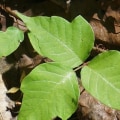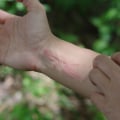Applying isopropyl alcohol to a rash can help dry it out and prevent infection. Isopropyl alcohol can remove urushiol oil from skin and other surfaces. It's a good idea to bring alcohol wipes with you when hiking or camping to apply them quickly to the affected area after exposure to poison ivy. The Food and Drug Administration (FDA) reports that urushiol can stay on the surface of most items that come in contact with poison ivy, sometimes for years, unless a person treats it with alcohol or water.
Research suggests that using a modified version of bentonite clay (quaternium-18 bentonite) may help prevent or control contact dermatitis caused by poison ivy and poison oak. The rash can cause serious discomfort, but home remedies can often help soothe you. They include cleaning with isopropyl alcohol, washing with warm water and applying cold compresses. If these medications do not relieve pain, the pharmacist may recommend over-the-counter medications.
If symptoms persist or are severe, the person may need to talk to a doctor. Certain natural remedies can help eliminate a poison ivy rash overnight. Baking soda, apple cider vinegar, bleach, oatmeal bath and jewelry work effectively. In addition, toothpaste, banana peel, essential oils, coconut oils, Epsom salt, aloe vera, lemon juice and neem oil help control ivy rash.
Identifying poisonous plants, cleaning them, and washing your hands and all other objects that come into contact with poison ivy can help reduce the risk of rash. Applying a barrier cream when there is a risk of poison ivy reduces the risk of infection. Poison ivy, poison oak and poison sumac are a year-round hazard. Here are some tips for preventing and treating itchy rash and blisters.
To relieve itching, take short, warm baths in a colloidal oatmeal preparation, which you can buy at the local pharmacy. You can also take a bath and add a cup of baking soda to running water. Taking short, cold showers can also help. Once you have had a poison ivy, poison oak, or poison sumac rash, your symptoms will appear more quickly the next time you are exposed.
Antihistamines aren't usually used because they don't relieve itching caused by poison ivy dermatitis; however, sleepy antihistamines, such as diphenhydramine (Benadryl), may help you sleep during itching. In general, vinegar has been used for centuries to treat common ailments, including poison ivy rashes, but there is no scientific evidence that apple cider vinegar is specifically effective in treating poison ivy. While you were working in the backyard, you pulled out some unwanted weeds before realizing that one of them was poison ivy. Given its acidic, anti-inflammatory and antimicrobial properties, ACV is one of the best options for treating poison ivy rash (.
A poison ivy rash usually goes away without medical treatment, but until then it can cause serious discomfort. A rash that results from contact with poison ivy often looks like a straight line because of the way it rubs against the skin. If you touch a poison ivy plant with your hands, for example, and then touch your face or body, you will see a rash both on the original point of contact and on the places you have touched. A poison ivy rash can be difficult to remove and could also spread to other parts of your body if you don't manage to remove the resin soon.
If you can rinse your skin immediately after touching poison ivy, poison oak, or poison sumac, you may be able to rinse off some of the oil. There is a phrase, leaves of three, let them be, which can serve as a useful reminder to identify and avoid poison ivy and other related toxic plants. However, if it comes into contact with its irritating oil resin directly or through other objects, it may develop a poison ivy rash. Factors that may cause or increase the risk of developing a poison ivy rash are discussed below.
According to the American Skin Association, between 10 and 15% of people are extremely allergic to poison ivy and should see a doctor if they touch the plant. Recognizing and Avoiding Poison Ivy During All Four Seasons May Help Reduce the Risk of Poison Ivy Dermatitis. . .
